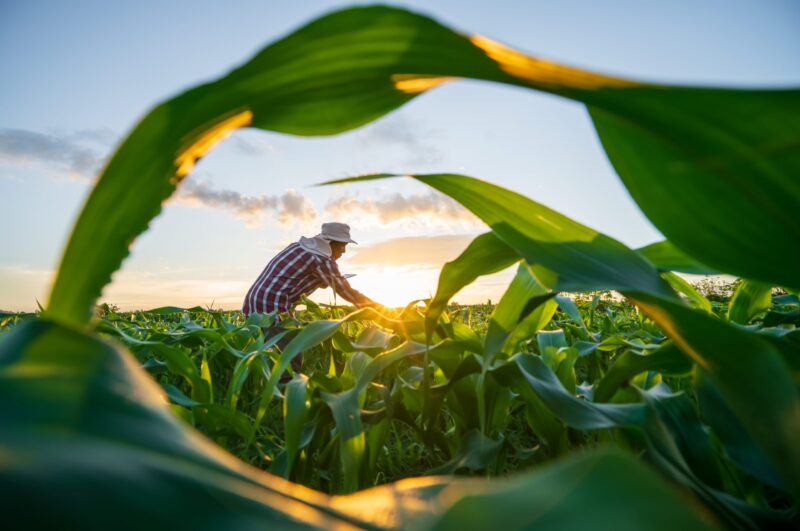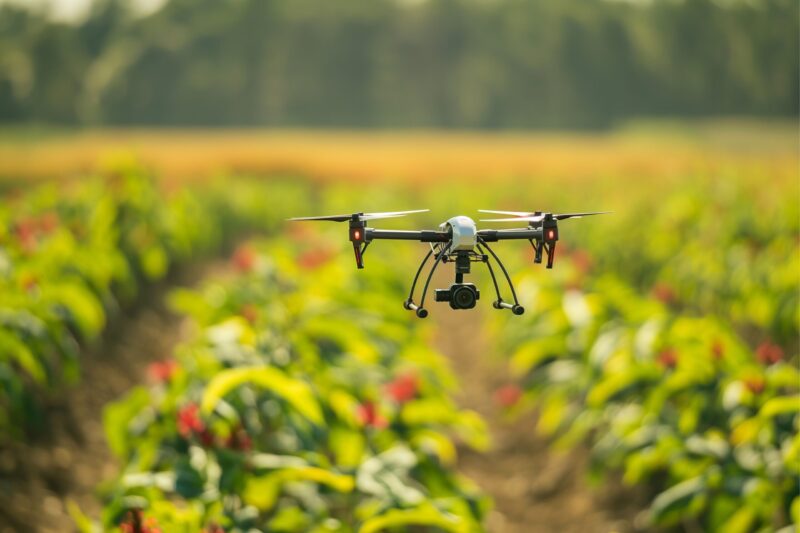
This site
is mobile
responsive

Food safety, now more than ever, has taken centre stage in global forums. The COVID-19 pandemic brought this sharply into focus, exposing vulnerabilities in global agri-food supply chains. It also underscored how quickly disruptions in logistics, labour, or supply can compromise national food security.
Malaysia’s food supply is generally secure, ranking 8th among Asia-Pacific nations in the 2022 Global Food Security Index. This strength is supported by solid performance in food availability, stability, accessibility, and affordability. However, Malaysia’s heavy reliance on imports leaves it vulnerable to external shocks and supply chain disruptions.
Recognising this vulnerability, Malaysia has embarked on a strategic national initiative to strengthen food security by emphasising the development of its agro-based economy, with the goal of transforming and modernising the agri-food supply chain. Through this shift, the nation aims to boost its resilience and create strong long-term growth opportunities in a sector poised for innovation and sustainable impact.
The agri-food supply chain, beginning with farm produce and progressing through processing and logistics before reaching retail markets, is currently undergoing a profound transformation. Today’s consumers demand more than just quality and nutrition; they expect sustainability, transparency, and traceability at every stage of the food supply chain.
This shift is driving innovation across the sector, encouraging stakeholders to adopt smarter, environmentally friendly, and more responsible practices that not only meet consumer expectations but also strengthen Malaysia’s food security for the future. As a result, the demand for advanced food safety systems, digital traceability solutions, and rigorous quality assurance protocols has grown, opening new market opportunities for strategic and forward-thinking investors.
The emphasis on integrity and traceability reinforces Malaysia’s position as a global leader in halal certification and production. International buyers have consistently recognised Malaysia’s rigorous halal standards as a key differentiator. Backed by a strong regulatory framework, Malaysia has introduced innovations across the supply chain that solidify the quality and authenticity of its halal products. The Department of Islamic Development Malaysia (JAKIM), widely regarded as the gold standard in halal certification, enforcing traceability at every stage, providing assurance and enhancing Malaysia’s competitiveness in premium halal markets.
In this context, MIDA assumes a pivotal role in driving Malaysia’s agri-food ambitions. It actively promotes both domestic and foreign investments by offering policy support, attractive incentives, facilitation and developing the agri-food value chain in Malaysia.
Aligned with the National Agrofood Policy 2021-2030 (NAP 2.0), which seeks to modernise and build resilience in the agri-food sector, MIDA is fostering a more innovation-driven investment landscape. Key focus areas include:
Through these strategic priorities, MIDA supports the growth of a future-ready agri-food ecosystem that is efficient, competitive, and resilient.

An inspiring example of integrated agribusiness advancing food security is F&N AgriValley, a large-scale dairy farm covering 2,726 hectares in Gemas, Negeri Sembilan. Marking Fraser & Neave Holdings Bhd’s (F&NHB) strategic entry into upstream dairy production, the project is supported by investments of up to RM1.8 billion.
The facility features milking parlours, processing and packaging plants, and advanced technologies that enable a sustainable circular farming model. Key features include crop cultivation and the use of biodigesters to convert manure into renewable energy. Upon reaching full capacity, F&N AgriValley is projected to produce up to 200 million litres of fresh milk annually, providing affordable, high-quality dairy products while reducing reliance on imports in line with Malaysia’s food security objectives.
Other integrated agribusiness models such as Napier grass cultivation for animal feed, shrimp and crocodile farming, quail farming and durian farming with processing facilities – further demonstrate how investor driven initiatives can enhance food security, unlock value and create scalable, cross-border returns, especially with strong policy backing and MIDA’s facilitation.

In conclusion, Malaysia’s agri-food supply chain is not merely evolving — it is transforming strategically around innovation, resilience and sustainability. From the clear policy guidance of NAP 2.0, to consumer-driven imperatives for safety and transparency, the conditions are ideal for a new wave of investments that promise both national impact and global competitiveness. With the right infusion of capital, strategic partnerships and transformative technology, investors are uniquely positioned to tap into a rapidly modernising ecosystem that spans upstream production, intelligent logistics, climate-smart solutions, and value-added processing.
The transformation unfolding now is not a minor adjustment — it is systemic and decisive, opening doors for Malaysia to assume a leadership role in regional food security, halal exports and sustainable agribusiness. MIDA remains steadfast in supporting and facilitating investors seeking to leverage Malaysia’s unique position in the regional agri-food supply chain.
To learn more about investment opportunities, contact the Food Technology & Resource Based Industries Division at https://www.mida.gov.my/staffdirectory/food-technology-resource-based-industries-division/
